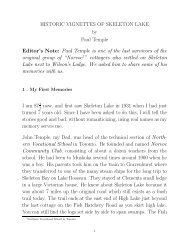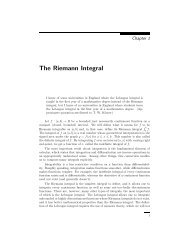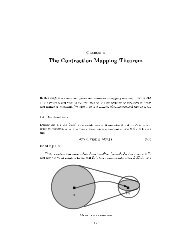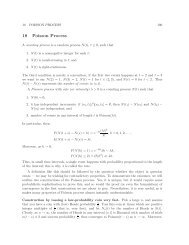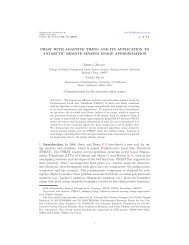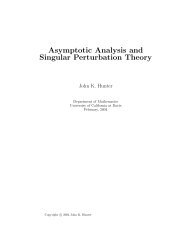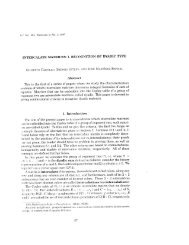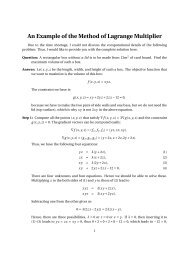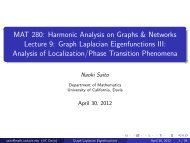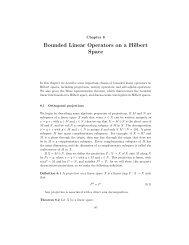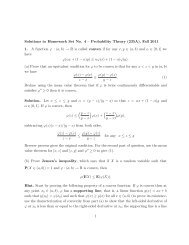Minimization by Random Search - Department of Mathematics
Minimization by Random Search - Department of Mathematics
Minimization by Random Search - Department of Mathematics
Create successful ePaper yourself
Turn your PDF publications into a flip-book with our unique Google optimized e-Paper software.
MINIMIZATION BY RANDOM SEARCH TECHNIQUES<br />
PROOF. From (HI) it follows that xk or ~k in RE,M implies that x k' E RE,M for all<br />
k') k + 1. Thus<br />
and hence<br />
P[xk E RE,M] = 1 - P[xk E S\R,]<br />
> 1 -<br />
k<br />
(1 -<br />
k-I<br />
1 > limP[xk E R E,M> 1- lim (1 - l(R,M))<br />
kToo k'oo /TO=0 1<br />
(RE,M ))<br />
where the last equality follows from (H2). This completes the pro<strong>of</strong>.<br />
The convergence pro<strong>of</strong>s <strong>of</strong> a number <strong>of</strong> algorithms suggested in the literature are<br />
<strong>of</strong>ten involved versions <strong>of</strong> the preceding, rather trivial, theorem. In [4] Gaviano<br />
proposes the following version <strong>of</strong> the conceptual algorithm. Set<br />
where<br />
Xk = arg min [f((l<br />
D(xk ,k) = (1 - Xk)xk + k<br />
- A)xk + Xk ): (1 -)xk<br />
+<br />
= 1<br />
k E S]<br />
and for each k, Mk is the uniform distribution on an n-dimensional sphere centered at<br />
xk and with radius > 2 diamS = 2 max{dist(x, y), x, y E S }. Convergence is proved<br />
when f is continuous and S is the closure <strong>of</strong> its interior and bounded. With similar<br />
assumptions Baba et al. [5] establish convergence when<br />
D(xk,k)= )<br />
k when f(k )



